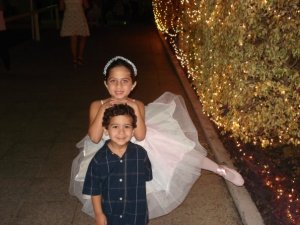Another Annual IATEFL Conference has come to an end.
An intense week of attending presentations, checking out what new books and resources there are in the market, meeting old friends, making new ones, discussing teaching and teacher development. It’s so intense and you get such an adrenalin rush from all of it that it is inevitable to feel a bit blue afterwards.
The venue was excellent – even if a bit far from the city (just a 15-minute walk, but with the programme, there isn’t enough time to go eat something in the city centre and go back in time for the next session). Good rooms, well located exhibition, plenty of places to sit down and meet people. I do, however, think two things didn’t work as well as they could – and I know I echo what some of the other people, who have posted reflections about the conference, in what I am about to say. The first is that some of the talks I wanted to attend were in small rooms (and I do realise some of the presenters specifically requested a limited number of seats, but that was not always the case) and by the time I got to those rooms, there were no more seats. Because of health and safety regulations, we couldn’t sit on the floor or stand on the back. I know it is difficult to predict who will have a large number of people turn up for their talk and who won’t, but it doesn’t stop being frustrating. The second is that the venue being somewhat far from the city centre made lunch time complicated (long lines in the places at the venue, or missing the first afternoon session if you decided to eat at the Bistro there). Maybe I was badly spoiled in Brighton last year, where there were many options around the venue. It also represented a problem at the end of the day, when a large number of people got out at the same time and tried to find a taxi to go back to the hotels or to one of the evening events. I understand there isn’t much the coordinating committee can do about them, but those were the two things I felt that could have been better. That is the yellow (making an analogy with traffic lights, I guess) part.
On to the green… My overall conference experience this year was even better than last year’s. Maybe I got luckier at choosing the sessions I attended, going to sessions that were more relevant and meaningful to me. I also think there is a little of what Adam Simpson says on his A Tale of Two Conferences (part two) post: being involved in sharing and connecting through social media and being involved in the ELT blogosphere (reading and writing in them) changes your conference experience. And not only for the people you meet – first virtually and then in person. More importantly, having a PLN and being active on Twitter and reading people’s blogs has given me a better sense of what people are involved in, what they do, their views on teaching. It broadens your horizon. So now when I go to a conference I recognise many of the names in the programme, either because I interact with them virtually already, or because I have read about them in other people’s blogs. Whether that is the reason or not, my experiences at conferences ever since have been much better, I have taken much more from them.
Instead of blogging about the sessions I went to – especially because other people do a much better job at it – I decided to talk about a great, motivating feeling I got at the IATEFL Conference in Glasgow. A feeling that struck me on the very first day and it continued on during the week. A feeling that has made me very happy. It is a distinct feeling of a common topic and way of thinking among many of the presenters and participants. It gave me a sense of the direction I believe (and sincerely hope) ELT is going towards.

Which way are we going? Finally a sense of direction! (image by @Cgoodey - ELTPics on Flickr, CC License)
This “sense of direction” started taking shape after I attended Anthony Gaughan’s session “The Seven Deadly Sins of ELT” (which by the way was a session many people I know tried getting in and couldn’t, for it was full already). In his talk Anthony challenges many of the practices considered “sins” in the ELT classroom – especially after the communicative approach – and made us reflect upon benefits from using them in certain situations and for the right purposes (At this point I am thinking I’m going straight to ELT hell for all I have sinned!). Among the sins are repetition drilling, translation, L1, teacher explanations and telling your students they are wrong – as opposed to recasting. You could hear the sighs of relief across the room!!! The truth is, so many of us (I wouldn’t dare say all of us, but the thought did cross my mind ;-)) already think that way and do those things in class, but many do it hoping no one finds out. The majority of those who do it certainly won’t do it if/when being observed by a DoS or another teacher. Because we have been told over and over not to. Because those techniques are old. They’re not communicative. But, as Anthony asked himself: “Does everything have to have communicative value?”. Personally, I think communication is the end, where we want our students to get, but not necessarily the ideal means in every moment of the class. Any extreme is usually flawed. Anthony’s session was filled with questioning and ideas of how / why to use those techniques.
In the afternoon, that same day, I went to Jim Scrivener’s “A Proposal for Active Interventionist Teaching”. Jim says the communicative approach has settled down into a safe, peaceful dead-end, and it isn’t leading to very much learning. While I don’t entirely agree with Jim that we are in a dead-end (after all, not all of us are limited by it, even if no openly. Much has been done and progressed), I could relate to it – and it resonated so closely to what Anthony had said in the morning. He questioned the label of teachers as ‘facilitators’, as passive people standing on the back guiding students into developing their own learning. He stated that it is an active, creative, shaping role – not an abdicating one. He reflected upon the amount of empty praising there is going on in classrooms around the world and whether it really is effective. He suggested real, effective feedback as more efficient tools. Just as Anthony, he said problems have to be pointed out to students and that teachers have to cease being scared of hurting the students’ feelings. We should not be mean or rude – by all means! His point was that we can’t be overly afraid. We have to give teachers permission to teach again.
Those were just the two first sessions that gave me the sense of direction I mentioned. Throughout the rest of the week other sessions steered in that direction as well. If last year I felt the conference was about technology and tools to use with students, this year, for me the conference was about stopping on our tracks for a bit, assessing, reflecting and evaluating what really is working and what isn’t in the way we are expected / supposed to teach these days. We have to use some critical thinking (which we talk so much about teaching to our students – it’s time we use it as well!) and be honest about it. And make any necessary changes, adapting and personalisation needed without being afraid. We are the experts in class. We should be allowed to teach and decide which technique or activity will be more effective with each learner / group of learners in different moments. Effective teaching, as far as I am concerned and have noticed over the many years I have been teaching, is not black and white. There is no absolute truth, or a right and a wrong way of doing it. There are uncountable shades of gray, because teachers are different, students are different, needs and learning styles are different… And the teacher should be allowed to decide what works best for his/her learners and groups without being judged by it.
The conference in Glasgow was great for many reasons. But the one thing that gave me a breath of fresh air and motivation to go back to the classroom and do my job was the feeling that we are slowing demanding (as teachers) and giving (as students, DoS and “thinkers”) teaching back to teachers. And that feels good.
I guess I won’t be going to hell anymore, after all 😉





